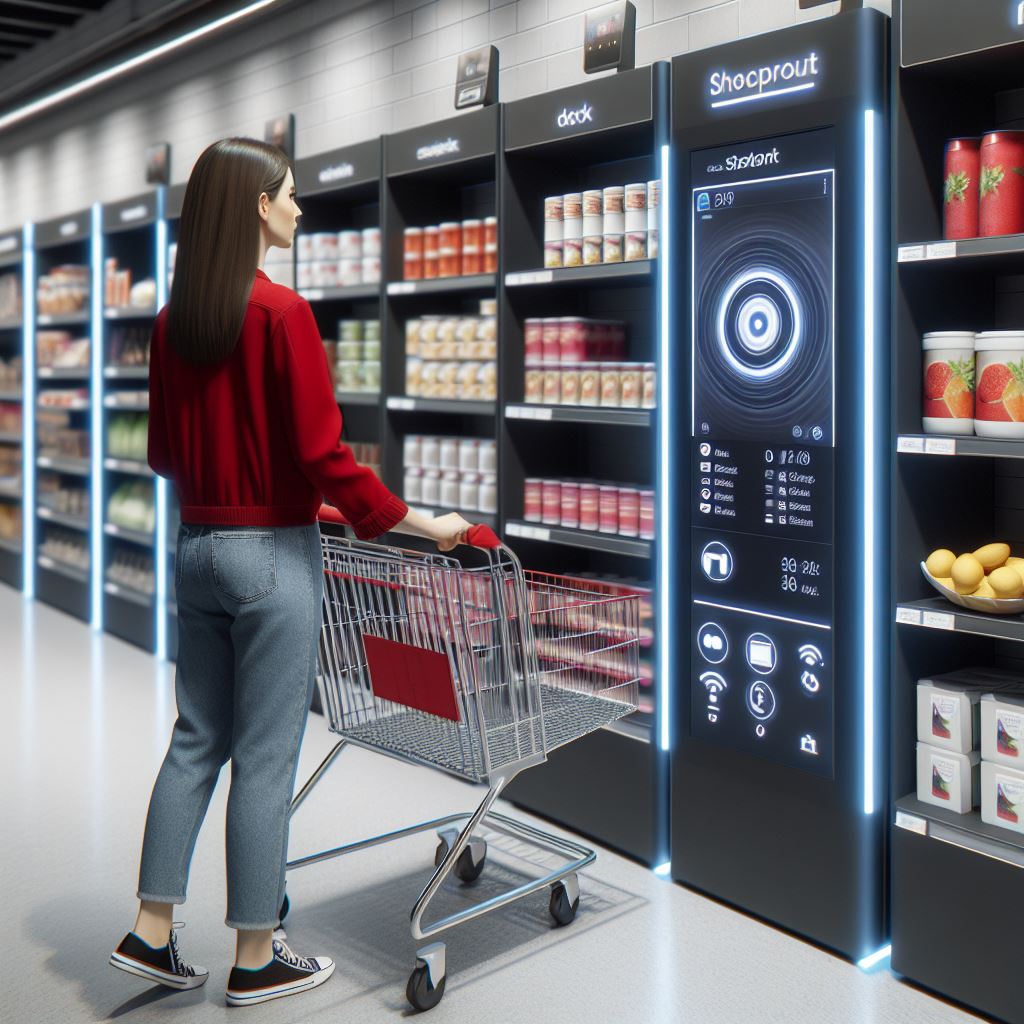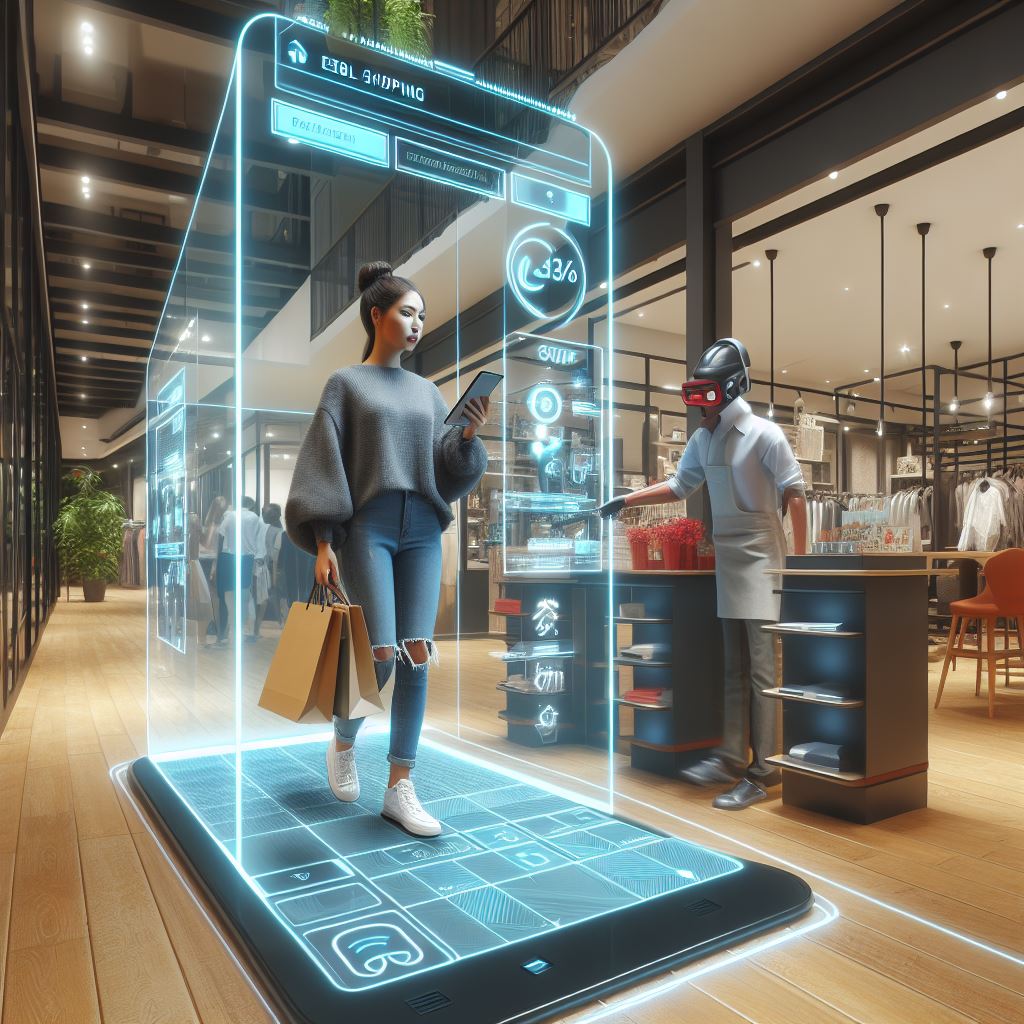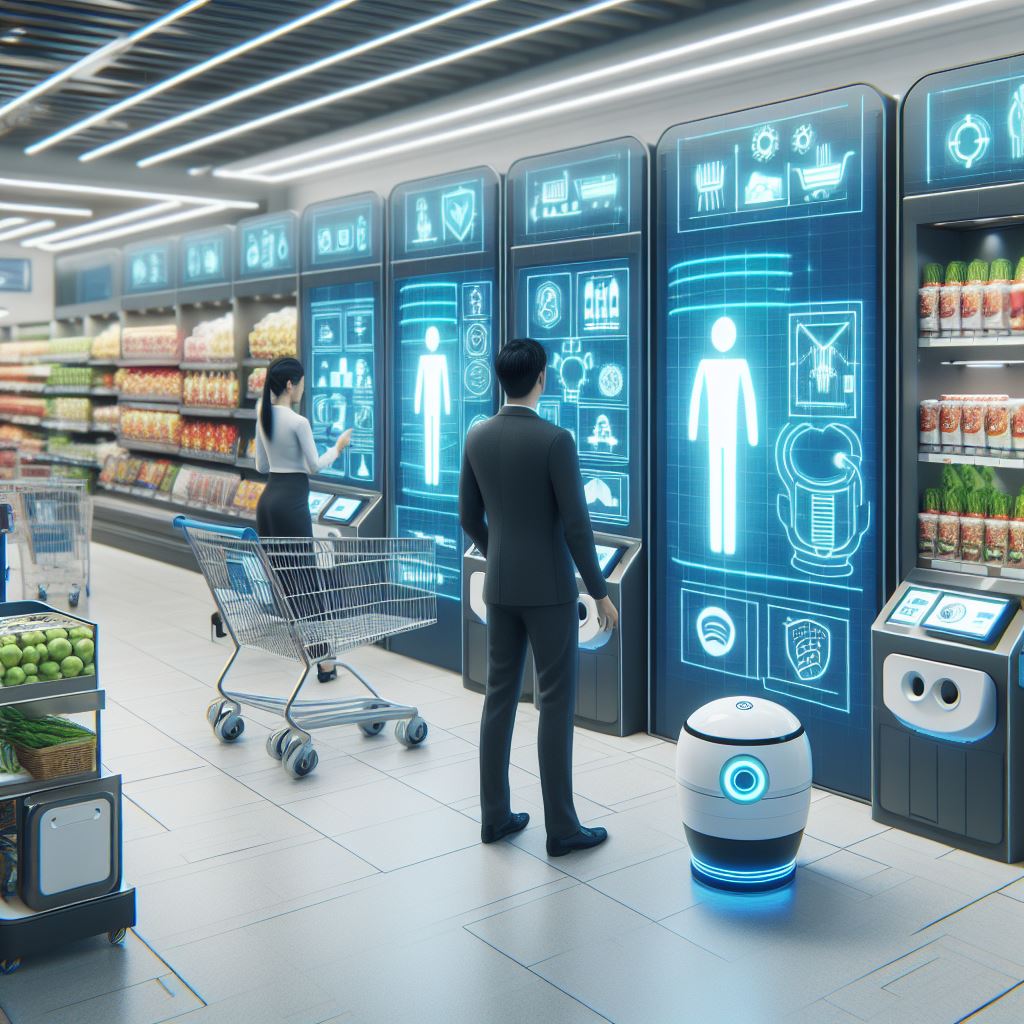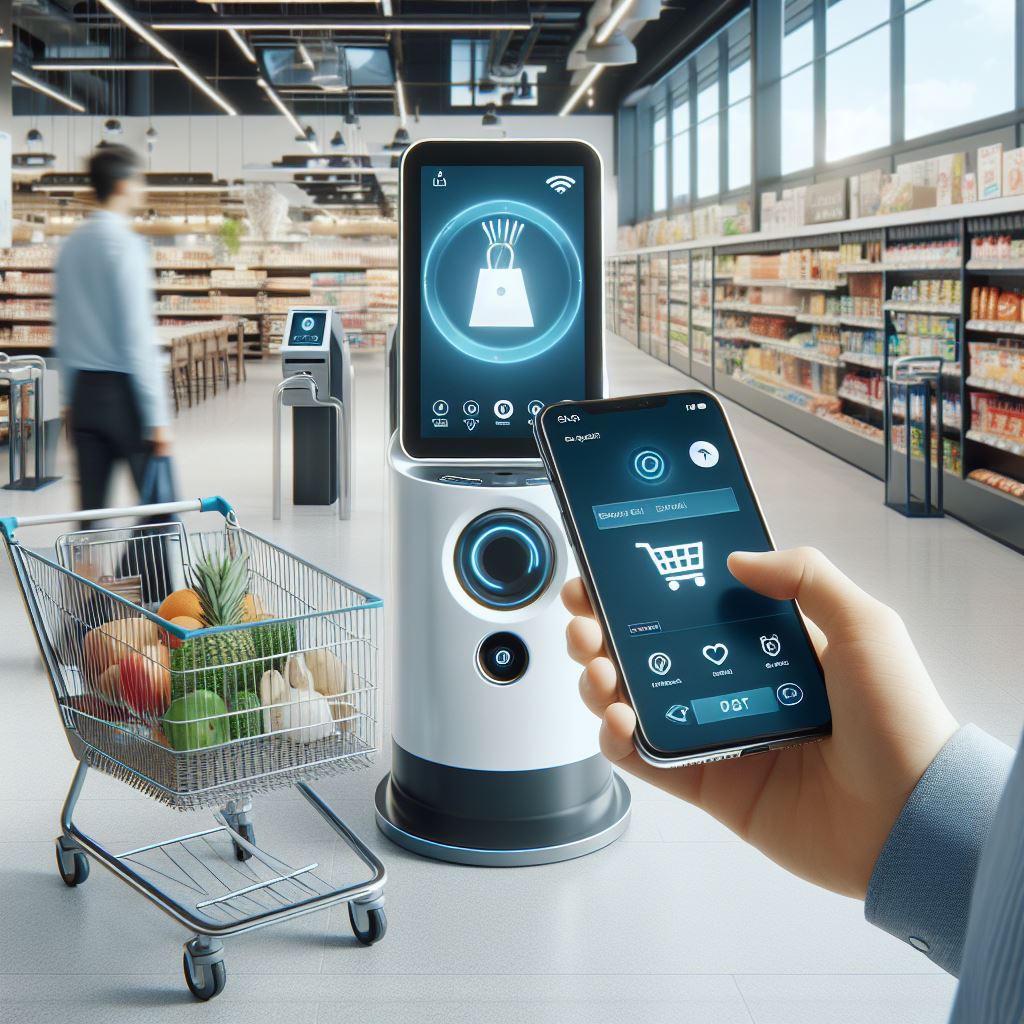From Chatbots to Self-Service: AI and Customers

AI-Powered Customer Independence
One trend steadfastly altering the world of customer service is the advent of AI. Artificial intelligence, with its remarkable capabilities, is redefining how businesses interact with their consumers. Today’s customers are increasingly drawn to swift, personalized, and seamless experiences – the very same qualities that AI-infused self-service systems offer. Gone are the days when waiting in long call queues for a customer service rep was the norm. The AI revolution is equipping customers with the tools they need to resolve their issues independently, fostering a new era of customer empowerment.
Think about it ‘ how often have you used a chatbot for an instant answer to your inquiry? Or navigated a help center powered by intelligent algorithms to find a quick solution without speaking to a human? AI is not just transforming customer service; it’s reshaping consumer expectations. The on-demand economy insists on instant gratification, and AI stands as the diligent genie, ready to grant these wishes with a click or a tap.
As organizations strive to meet these elevated expectations, AI-driven self-service systems are growing increasingly sophisticated. No longer simple automated responders, they are becoming intricate problem-solving entities. Machine learning, natural language processing, and predictive analytics converge to create smart chatbots and virtual assistants that not only address basic queries but also learn from interactions, improving over time.

These intelligent systems can guide users through complex processes, proactively provide information tailored to individual customer profiles, and even predict future needs. Moreover, they offer 24/7 support without fatigue, ensuring that help is always at hand and customers aren’t tethered to traditional business hours for assistance.
What is remarkable is not just the technological prowess behind these developments but the shift in customer behavior and perception they’ve ushered in. Consumers are increasingly trusting AI to handle their concerns, preferring to resolve issues quickly on their own rather than waiting for a human agent. The result is a more streamlined customer experience that retains satisfaction and loyalty, while simultaneously freeing up human customer service representatives to address more complex issues that require empathy and nuanced understanding ‘ areas where AI still lags.
The implications of this trend are significant for both businesses and consumers. For companies, embracing AI self-service solutions is a decisive step towards scalability and efficiency. It allows them to handle larger volumes of customer interactions without a proportional increase in support staff, translating into reduced operational costs and improved bottom lines.
For consumers, it spells greater control over their service experiences. With access to support whenever and wherever they need it, the frustrating barriers that once characterized customer service long wait times, inconvenient hours, and the dreaded phone tree are rapidly dissipating. Empowered by AI, customers now often find solutions in the palm of their hand.
As we delve further into the AI-propelled shift towards customer self-sufficiency, well explore the profound transformations in service dynamics, the challenges businesses face in implementing these technologies, and the roadmap to successful integration to ensure that these innovations continue to redefine the standards of customer service excellence.

Navigating the Challenges of AI Self-Service
The integration of AI-powered self-service options presents a plethora of opportunities for businesses looking to elevate the customer service experience, yet this metamorphosis is not devoid of its challenges. Implementing an AI system that is both effective and customer-centric demands a careful balancing act. It requires strategic planning, a focus on user experience, and an understanding of customers’ varying comfort levels with technology.
One significant challenge lies in the design and deployment phase. A poorly designed AI system can do more harm than good, frustrating customers with irrelevant responses and leading them down convoluted paths that fail to resolve their issues. To mitigate this, businesses must invest in sophisticated AI models that understand context and nuance, and that can handle a wide variety of customer queries with precision and personalization.
Integration with existing customer service frameworks is another hurdle. AI should augment, not replace, human interaction. For complex or sensitive situations that demand empathy and a human touch, customers should be able to easily escalate from self-service to personal support. Seamless hand-offs between AI systems and human agents are critical to prevent customer frustration and maintain service quality.
Moreover, businesses need to grapple with the evolving landscape of customer expectations. As AI self-service becomes more prevalent, expectations continue to rise. Consumers accustomed to excellent AI experiences with one company will expect no less from others, setting a high bar for all players in the industry. Staying ahead of the game requires constant innovation and the willingness to adapt strategies as AI technology and customer expectations continue to evolve.
Data privacy and security are paramount considerations as well. AI systems rely on vast amounts of customer data to function effectively and to personalize experiences. Ensuring this data is handled securely and in compliance with regulations like GDPR and CCPA is not just a legal obligation but also crucial for maintaining customer trust.

A successful implementation also calls for staff training and a shift in organizational mindset. Human customer service agents need to adapt to the changing nature of their roles, focusing on more complex and high-level tasks. Moreover, they must be trained to work alongside AI tools, understanding their capabilities, and limitations to ensure a cohesive service strategy.
Despite these challenges, when AI self-service is approached with the right blend of technological acuity and customer empathy, the results can be transformative. By harnessing the potential of AI intelligently, businesses can create an empowering self-service ecosystem that not only meets but anticipates the needs of their consumers.
Moreover, its essential to monitor and measure the performance of AI self-service systems. Analytics plays a crucial role here, helping businesses gain insights into user interactions with the AI, identify areas for improvement, and understand customer behavior patterns. This data can drive iterative enhancements, ensuring the system evolves in alignment with both user needs and technological advancements.
As we move forward, exploring this transformative intersection of AI and customer service, we will delve into the tangible impacts on business operations and consumer satisfaction. In addition, we will forecast future trends and potential developments in the realm of customer empowerment through AI, contemplating a horizon where customer service is not just a reactive function but an anticipatory, deeply integrated part of the customer experience.

The Transformational Impact on Business and Consumer Satisfaction
The transformative power of AI in customer self-service is manifesting itself in several compelling ways, both for businesses and their clientele. These advanced systems not only redefine operational efficiency but also elevate the user experience to unprecedented heights. In this synthesis of technology and service, we witness a significant shift in business models and consumer interaction paradigms, signaling a future where customer satisfaction and business success are intricately linked to AI innovation.
For businesses, the operational advantages of AI self-service are clear. With the ability to handle an ever-increasing volume of customer inquiries without the need for proportional staffing increases, companies are seeing a direct impact on their bottom line. They are capable of scaling their customer service operations swiftly, managing spikes in demand without compromising quality. This scalability is pivotal for businesses seeking growth in a competitive landscape where the ability to rapidly adapt to shifting market dynamics spells the difference between success and obsolescence.
Furthermore, the rich insights garnered from AI systems offer businesses a goldmine of data that can shape product development, marketing strategies, and overall customer experience. By analyzing interaction patterns and customer feedback, companies can identify pain points, streamline processes, and even predict customer needs before they arise. This proactive approach to customer service can lead to a more personalized experience, fostering a sense of loyalty and deepening the consumer-business bond.
From the consumer perspective, the empowerment derived from AI self-service is equally impactful. The autonomy to resolve issues swiftly and on their terms is a significant shift from traditional service models. This empowerment doesn’t merely enhance satisfaction; it fundamentally alters consumer expectations and lays the groundwork for a new service standard that prioritizes convenience, speed, and personalization.
Customer service interactions that were once potential points of dissatisfaction have become opportunities to positively impress customers. A successful interaction with an AI system can create a memorable experience, driving not just satisfaction but advocacy. In the age of social media and online reviews, a positive service experience can enhance a company’s reputation far beyond the immediate interaction.
AI’s role in the future of customer service is not static. As technology evolves, new applications for AI in self-service are continually emerging. We are beginning to see AI systems integrate with voice recognition technology, providing support through devices like smart speakers. Augmented reality and virtual reality are other realms where AI can redefine self-service, offering immersive and interactive ways for customers to engage with products and troubleshoot issues.
While the fusion of customer satisfaction and business success through AI is an evolving narrative, this is not the end of the journey it’s an ongoing evolution. In the fourth and final segment of this exploration, we’ll ponder the future landscape of AI in customer service. Well examine emerging trends, potential pitfalls, and strategies that businesses must adopt to harness the full power of AI self-service. The ultimate goal is to achieve an equilibrium where technology enhances human connection, rather than replacing it, fostering a symbiotic relationship between businesses and the customers they serve.

Envisioning the Future with AI-Driven Customer Service
As we look to the horizon of AI-driven customer service, what stands before us is a landscape brimming with potential and fraught with challenges that will require careful navigation. The future promises advancements that will further break the mold of traditional service interactions, providing businesses and customers with experiences that are not only efficient but are truly delightful and engaging.
Emerging trends in AI advancements are set to push the boundaries of what these systems can achieve. For instance, the integration of AI with Internet of Things (IoT) devices opens the door to an ecosystem where customer service becomes a seamlessly integrated part of the product experience. Imagine your smart refrigerator detecting a malfunction and proactively contacting support, scheduling a repair, or even ordering the necessary parts, all without the customer lifting a finger.
Conversational AI is another arena with tremendous growth potential. As language processing technologies advance, we will witness a gradual erosion of the line between speaking with a human and an AI. Personalized, conversational, and context-aware AI assistants will handle increasingly complex interactions, making the customer service experience more natural and less transactional.
Yet, as AI customer service agents become more sophisticated, there arises a pressing need to tackle ethical considerations such as transparency about when customers are speaking with a bot versus a human. Establishing best practices and ethical guidelines will be essential to maintaining customer trust in a world where AI plays a prominent frontline role in service delivery.
Moreover, the future of AI in customer service will not be without its potential pitfalls. Over-reliance on AI could lead to a depersonalization of the service experience if not managed correctly. Businesses must maintain a balance, offering easy routes to human support when the situation necessitates. Additionally, with the advent of new technologies will come new customer concerns around privacy and data security that organizations will need to address proactively.
To make the most of the opportunities that AI self-service presents, businesses must embrace a forward-thinking strategy that invests in continuous learning and adaptation. As AI evolves, so too should its application in customer service, always with an eye on delivering experiences that are personal, relevant, and respectful of the customer’s preferences and data.

Ultimately, the AI-infused future of customer service will be characterized by personalization at scale, preemptive problem-solving, and the ability to deliver delight in each interaction, regardless of the complexities behind the scenes. It will be a future where the measure of success is not just the efficiency of problem resolution but the joy and ease with which it is achieved.
As we close this series on the revolutionary impact of AI on customer service, we anticipate a dynamic and exciting future one where AI continues to empower customers and businesses alike, and where the true potential for extraordinary service has only just begun to be tapped.




